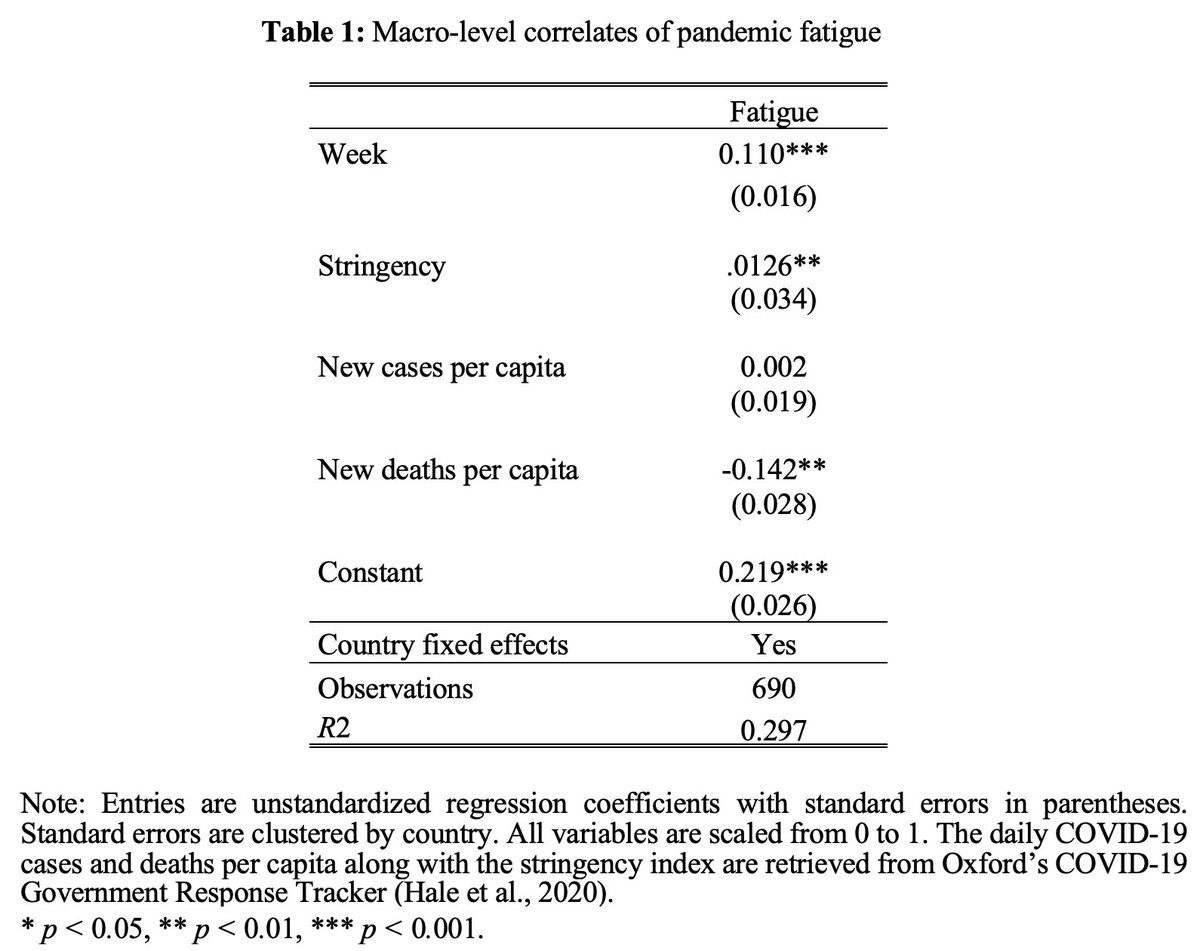
Should we care about "pandemic fatigue"?
Yes.
Fatigue rises when restrictions are hard & deaths low
It erodes trust, breeds protest & sows conspiracy beliefs
Too harsh restrictions fatigues the public & thus undermine authorities
🚨New paper: psyarxiv.com/y6wm4
🧵(1/9)
Yes.
Fatigue rises when restrictions are hard & deaths low
It erodes trust, breeds protest & sows conspiracy beliefs
Too harsh restrictions fatigues the public & thus undermine authorities
🚨New paper: psyarxiv.com/y6wm4
🧵(1/9)

In 2020, @WHO warned about "pandemic fatigue": apps.who.int/iris/bitstream….
The concept sparked debate regarding its causes, consequences - and even its existence. Thoughtful pieces in the debate include bmj.com/content/371/bm… & bmj.com/content/372/bm…. (2/9)
The concept sparked debate regarding its causes, consequences - and even its existence. Thoughtful pieces in the debate include bmj.com/content/371/bm… & bmj.com/content/372/bm…. (2/9)
To study fatigue, we use longitudinal surveys from Sep '20 to July '21 in 8 countries: 🇩🇰🇮🇹🇭🇺🇩🇪🇸🇪🇬🇧🇫🇷🇺🇸. N is nearly 50,000. Fatigue is measured as agreement with the statement: "I do not think I can keep up with the restrictions against the coronavirus for much longer." (3/9)
First, we analyze the development in fatigue over time at the country-level. Fatigue goes up with more stringent restrictions. Also, as time goes by fatigue for a given set of restrictions increase. But the epidemic matters too (see next tweet!). (4/9) 

When epidemic severity increases, a given set of restrictions feels less burdenful and fatigue goes down. In other words, when the public sees the meaning with restrictions, they feel they can comply more and longer. (5/9)
Fatigue is associated with the view that policies are too extreme, support for protests, concerns re: democracy, conspiracy beliefs & distrust in the gov. Fatigue doesn't create support for strong leaders (a common form of discontent) - fatigued ppl turn way from them. (6/9) 

But what is cause and effect? With repeated data on 10,000 individuals, we can get some causal leverage. Analyses with two-way fixed-effects models suggest that fatigue exerts an effect on these forms of political discontent, making people more distrusting of the system. (7/9) 

These findings show that the costs of restrictions are not only economic in nature. In addition, they are political. If restrictions are too harsh given epidemic severity, they create fatigue & undermine trust. Trust is key for pandemic management & a resource to protect. (8/9)
Note this paper is a preprint and has not been peer-reviewed. The data and code are available on @OSFramework: osf.io/ax6zv/. Thoughts appreciated. 🙏
Potentially of interest to @SusanMichie, @ReicherStephen & @robert_bohm, who's work had a strong influence. (9/9)
Potentially of interest to @SusanMichie, @ReicherStephen & @robert_bohm, who's work had a strong influence. (9/9)
• • •
Missing some Tweet in this thread? You can try to
force a refresh














